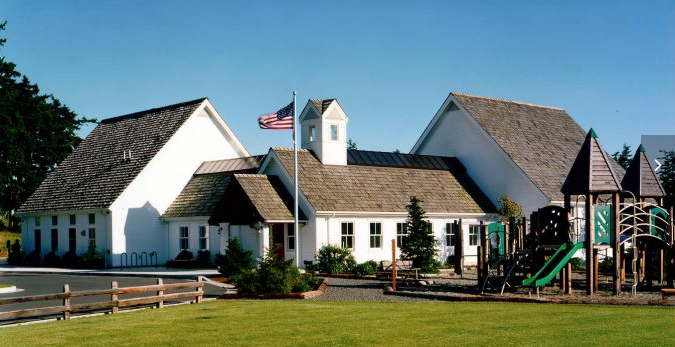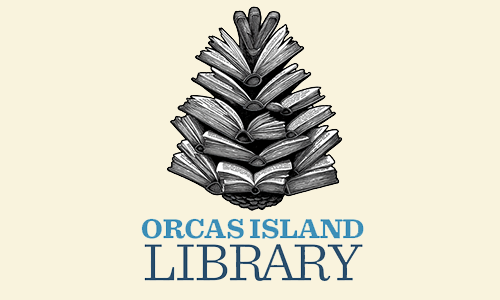— from Dale Heisinger, MD —
On June 5, 1966, I recited the Hippocratic oath before receiving my MD degree. The Oath stated that I was to “apply, for the benefit of the sick, all measures required”, in a “warm, sympathetic, and understanding way.” That oath defined for me the standard by which I would apply my medical skills.
After completing my Residency in Pediatrics, I began my practice in a small college town. I expected to be available to my patients 24/7 since there was no delineation between primary care, after hours or urgent care. And my Family Practice peers did the same. Things have changed since then, for many different reasons,and not necessarily to our liking.
Now, availability of care 24/7 is not guaranteed and it potentially comes at a price. And if we lose medical care, it can become expensive. As a Pediatrician and in keeping with the American Academy of Pediatrics, I saw infants six times in their first year of life. Imagine the cost if those children needed to be taken off-island for those exams – time away from work, travel expenses, meals, etc. More important, if those children are not seen, there is a risk of not discovering conditions the consequence of which would seriously impact that child and his/her parents, which occurred many times in the course of my career. I suspect that our adult primary care physicians had similar experiences.
Therefore, the seminal issue for me is the passage of the PHD thereby guaranteeing access to qualified physicians now and in the future. Without it, most options are off the table. If the UW and/or OFHC close their doors, and without adequate funding, it will be difficult to attract quality physicians who expect competitive compensation, shared call, support for Continual Medical Education, time off, retirement and insurance benefits.
A Public Hospital District, by providing sustainable and predictable funding, will be the essential ingredient in assuring that we have the quality of healthcare that we deserve.
VOTE YES for San Juan Co Public Hospital District #3.
**If you are reading theOrcasonian for free, thank your fellow islanders. If you would like to support theOrcasonian CLICK HERE to set your modestly-priced, voluntary subscription. Otherwise, no worries; we’re happy to share with you.**








As a fellow MD, I appreciate the sentiment of your letter. Our class decided NOT to take the Hippocratic Oath because it contains other clauses that we found objectionable such as refusing to perform abortions:
Hippocratic Oath: “I swear by Apollo the Healer, by Asclepius, by Hygieia, by Panacea, and by all the gods and goddesses, making them my witnesses, that I will carry out, according to my ability and judgment, this oath and this indenture.
To hold my teacher in this art equal to my own parents; to make him partner in my livelihood; when he is in need of money to share mine with him; to consider his family as my own brothers, and to teach them this art, if they want to learn it, without fee or indenture; to impart precept, oral instruction, and all other instruction to my own sons, the sons of my teacher, and to indentured pupils who have taken the physician’s oath, but to nobody else.
I will use treatment to help the sick according to my ability and judgment, but never with a view to injury and wrong-doing. Neither will I administer a poison to anybody when asked to do so, nor will I suggest such a course. Similarly I will not give to a woman a pessary to cause abortion. But I will keep pure and holy both my life and my art. I will not use the knife, not even, verily, on sufferers from stone, but I will give place to such as are craftsmen therein.
Into whatsoever houses I enter, I will enter to help the sick, and I will abstain from all intentional wrong-doing and harm, especially from abusing the bodies of man or woman, bond or free. And whatsoever I shall see or hear in the course of my profession, as well as outside my profession in my intercourse with men, if it be what should not be published abroad, I will never divulge, holding such things to be holy secrets.
Now if I carry out this oath, and break it not, may I gain for ever reputation among all men for my life and for my art; but if I break it and forswear myself, may the opposite befall me.”
Instead, we took the Oath of Maimonides, the great Spanish physician, philosopher, rabbi, and educator:
“The eternal providence has appointed me to watch over the life and health of Thy creatures. May the love for my art actuate me at all times; may neither avarice nor miserliness, nor thirst for glory or for a great reputation engage my mind; for the enemies of truth and philanthropy could easily deceive me and make me forgetful of my lofty aim of doing good to Thy children.
May I never see in the patient anything but a fellow creature in pain.
Grant me the strength, time and opportunity always to correct what I have acquired, always to extend its domain; for knowledge is immense and the spirit of man can extend indefinitely to enrich itself daily with new requirements. Today he can discover his errors of yesterday and tomorrow he can obtain a new light on what he thinks himself sure of today.
Oh, God, Thou has appointed me to watch over the life and death of Thy creatures; here am I ready for my vocation and now I turn unto my calling.”
Neil,
While the Oath of Moses ben Maimon (not to be confused by the much longer prayer) has for some taken the place of the traditional Hippocratic oath, I prefer a more modern version of the H Oath at the end below.
But, I’d note that Moses ben Maimon’s 12th century pre-spanish spain was an example of amazing discovery and cooperation between Islam and Judaism (amazing when compared to today’s world).
But, before I turn to the modern oath, we would gain by noting a particular passage of Maimonides Oath (not the prayer), as follows:
“Grant me the strength, time and opportunity always to correct what I have acquired, always to extend its domain; for knowledge is immense and the spirit of man can extend indefinitely to enrich itself daily with new requirements. Today he can discover his errors of yesterday and tomorrow he can obtain a new light on what he thinks himself sure of today.”
As an aside: What you may note in the above is the refreshing modernism (albeit couched in an inescapable and thus finally limiting teleological context) of these above words in quotes—a method of self-correcting language, a non-absolutist claim to knowledge—which also explains how the Talmud almost permits (requires) that the honest inquiry by one seeking answers can even call for that person to leave the confines of his/her own faith (Judaism).
It’s pretty amazing given we’re talking about the late medieval—early 1100’s. This al-andalus, old andalusia time and place in pre-spanish Spain witnessed moors and jews living side by side in relative peace and harmony in an amazing era of discovery…(before Isabel and Ferdinand took back the area from the Arabs and formed the first modern european nation-state in the late 1400’s); was one of those rare epochs in human history and achievements.
Anyhow, back to my real point:
The Modern Hippocratic Oath:
Personally, I prefer the updated version of the Hippocratic Oath below, which began at Tufts in the mid-60’s and has grown in usage; I particularly like its secular cleaniliness and the leaving open of a door to when assisted suicide might be the most compassionate option,as follows:
“I swear to fulfill, to the best of my ability and judgment, this covenant:
I will respect the hard-won scientific gains of those physicians in whose steps I walk, and gladly share such knowledge as is mine with those who are to follow.
I will apply, for the benefit of the sick, all measures [that] are required, avoiding those twin traps of overtreatment and therapeutic nihilism.
I will remember that there is art to medicine as well as science, and that warmth, sympathy, and understanding may outweigh the surgeon’s knife or the chemist’s drug.
I will not be ashamed to say “I know not,” nor will I fail to call in my colleagues when the skills of another are needed for a patient’s recovery.
I will respect the privacy of my patients, for their problems are not disclosed to me that the world may know. Most especially must I tread with care in matters of life and death. If it is given me to save a life, all thanks. But it may also be within my power to take a life; this awesome responsibility must be faced with great humbleness and awareness of my own frailty. Above all, I must not play at God.
I will remember that I do not treat a fever chart, a cancerous growth, but a sick human being, whose illness may affect the person’s family and economic stability. My responsibility includes these related problems, if I am to care adequately for the sick.
I will prevent disease whenever I can, for prevention is preferable to cure.
I will remember that I remain a member of society, with special obligations to all my fellow human beings, those sound of mind and body as well as the infirm.
If I do not violate this oath, may I enjoy life and art, respected while I live and remembered with affection thereafter. May I always act so as to preserve the finest traditions of my calling and may I long experience the joy of healing those who seek my help.”